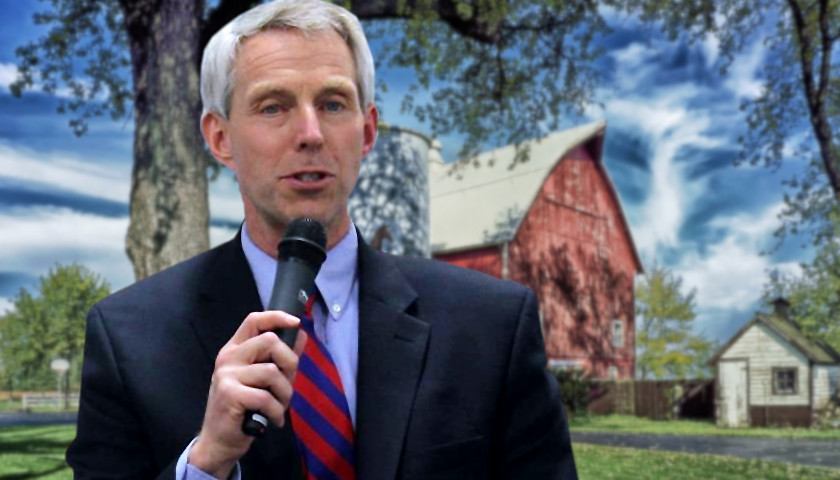by Carmel Kookogey
A group of Illinois Republicans is sponsoring legislation that would split the state in two: Chicago, and everywhere else.
State Rep. Brad Halbrook, a Republican representing Shelbyville, Illinois, spoke with The Daily Signal about the effort to win better representation for the people of rural Illinois, whose traditional and economic values are affected by policies favored by Chicago’s metropolitan population.
“There’s definitely an attack on our family values,” Halbrook told The Daily Signal. “We believe in traditional values. We are pro-life, we have a Second Amendment right to defend ourselves, but [Democrats in Chicago and Cook County] want to restrict that.”
Halbrook’s sponsorship of the resolution called HR0101 is joined by seven of the 44 Republican lawmakers in the state House who represent rural “downstate” districts: Chris Miller, Dan Caulkins, Darren Bailey, Tony McCombie, C. D. Davidsmeyer, Blaine Wilhour, and Randy E. Frese.
The proposal “urges the United States Congress to declare the City of Chicago the 51st state of the United States of America and separate it from the rest of Illinois.”
Is this possible? Halbrook says yes, and points to the Constitution.
“Article IV Section 3 in the U.S. Constitution allows us to separate,” Halbrook said. “We are guaranteed under the U.S. Constitution a representative or republican form of government, and we don’t have that. A majority of our representatives are from Chicago or Cook County, so the other 101 counties are not being equally represented.”
In order for the process to be implemented, he noted the resolution would need to pass both state legislative chambers and both chambers of Congress. It is currently supported by eight of 118 state representatives.
Two groups outside of the state Legislature are organizing movements to cut off Chicago, Halbrook said.
“There’s one effort called New Illinois, and they are modeling their effort after Article IV Section 3 of the U.S. Constitution,” Halbrook said. “The other effort is called The Illinois Separation, and they are doing a referendum to get an advisory question on the 2020 ballot. They’re doing a petition drive, which means you have to have signatures equal to 8% of voters in the last election to get the question on the ballot.”
Halbrook said that he believes once a declaration is signed, more counties will sign on to the plan, even if some of his co-sponsors have suggested the resolution is more about expressing frustration with Cook County policies than actually making Chicago into its own state. Halbrook said he is serious about separating.
“I’ll be honest, I even have some sponsors on the bill who have said they are less serious, and I get that,” Halbrook said. “But the folks at New Illinois and Illinois Separation, they are serious. Co-sponsors sign on to different legislation for different reasons, but I am serious about it because our state is crumbling, it’s a financial basket case.”
The resolution claims that the city is being supported by rural tax dollars, “such as the $221 million bailout for the CPS [Chicago Public Schools] pension system that was signed into law last year.”
Halbrook estimated that without Cook County, the rest of Illinois would retain approximately 7.6 million residents. Halbrook said that Cook County would have approximately 5.3 million residents.
The Daily Signal reached out to Democratic state Reps. Kambium Buckner and Sara Feigenholtz of Chicago, but they did not respond to requests for comment about how the city would be impacted by the measure.
The resolution is currently referred to the Rules Committee in the Illinois state House, but Halbrook told The Daily Signal that no hearing has been scheduled yet for the bill since it was referred to the committee in February.
– – –
Carmel Kookogey is a member of the Young Leaders Program at The Heritage Foundation.
Photo “Brad Halbrook” by Brad Halbrook.




